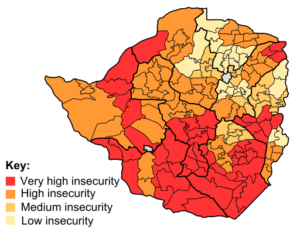The Venezuelan Disaster
French television has a recent documentary, “Dancing with the Dead” which captures the terrible collapse of that country. It begins by looking at popular religion in a cemetery, where people worship dead thieves. One follower of the group says “They weren’t like today’s thugs.” When people become sentimental for the criminals of the past, you know that things aren’t going well. Within the cemetery the graves are trashed by grave robbers looking for gold, rings and body parts that they can sell. Even the former president’s casket has been raided. For me, the moving scene was one in which a long-suffering priest performed a funeral for a homicide victim, while knowing that the people he buries will soon be dug up.
Still, the scene that I’ll most remember was when two ambulance attendant brought a thief to the hospital who had been shot in the hand. The hospital employees asked the ambulance medics if they wanted the hospital to treat his wound, with a touch of amazement or frustration in their tone. One would think that was an obvious question. But then they told the ambulance drivers that the hospital didn’t have the resources for this treatment, and that they should take him somewhere else, because he could lose his hand if they didn’t act quickly. The ambulance attendants asked rather plaintively where they should take him, but didn’t seem to receive an answer before they drove off into the night.
One point that you can’t miss viewing the video is how painfully thin many of the poor are. This film is highly recommended, but be forewarned that it does have disturbing images.
If you are interested in Latin America, you might want to read my book on the HIV epidemic in the region, or the history of military terror in Brazil.


![By Sparkve (Own work) [CC BY-SA 3.0 (http://creativecommons.org/licenses/by-sa/3.0)], via Wikimedia Commons. Please note the territory in red, which belongs to Guyana but is claimed by Venezuela. In 2015 Exxon discovered oil in this region.](https://www.introtoglobalstudies.com/wp-content/uploads/2016/12/512px-Mapa_Venezuela_Topografico-300x263.png)